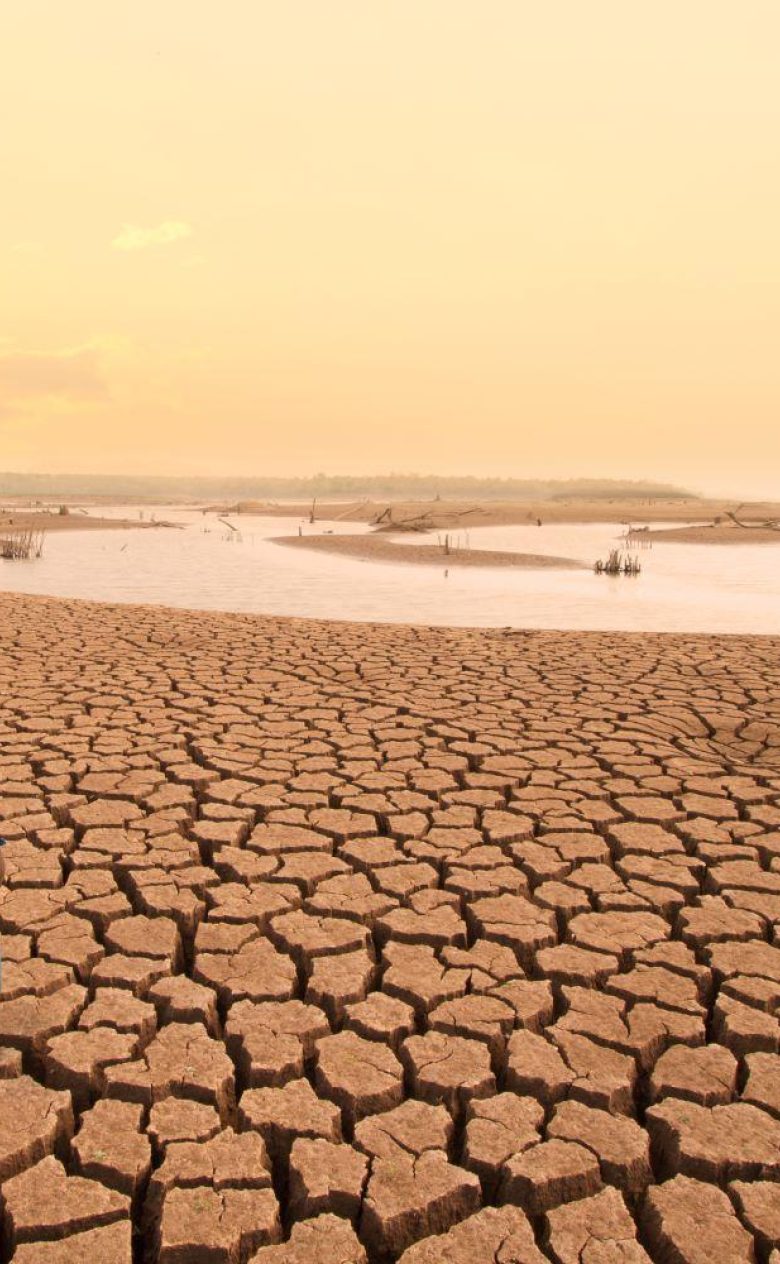Want to know more? Contact us







Climate change and its consequences can be seen on almost a daily basis: the sea level is rising and more extreme precipitation patterns and river levels are causing floods, with large numbers of casualties and extensive damage throughout the world.

The opposite situation – large, extended droughts as a result of global warming – has the same effects. Here, the threat is a lack of clean drinking water or water for growing food. Increasingly, risks are piling up like falling dominoes, adding to the disruption of society. That means there is an even more urgent need for adaptation strategies to tackle the consequences of climate change.
Deltares expert Ad Jeuken: ‘How do you prepare for the effects of climate change when they extend so far into the future? Do you adapt the water management arrangements in place, such as consumption, protection from storms and flood risk management? Or do you introduce completely new solutions? How can you be sure that your decisions and investments are the right ones? Those questions are on our clients’ minds, and we help them with the answers.’
Deltares maps out the different types of drought and flood risks worldwide for policy- and decision-makers in government, and increasingly for insurers. We study the effectiveness of adaptation measures for the long term and help our contacts to select the best possible adaptation strategy. Because of the long-term perspective, that is usually a roadmap with climate-resilient development pathways that build in enough time and space to implement concrete measures.
In these development pathways, we not only look at economic damage; we also study how groups are most affected by droughts or floods, and identify the groups concerned. Because working on the basis of damage would mean that risk in an area with large numbers of expensive houses would be higher than in an area with social housing. But the impact on lives in the second case is usually significantly greater because more people are affected and they live in more vulnerable locations.
In its analyses, Deltares also includes the socio-economic tipping points that could be caused by sea level rise, such as large-scale bankruptcies, falling house values or major disruption to society as a result of the flooding of key infrastructure.
The compound and cascade effect is also an integral component of our consultancy work on climate-robust development pathways: a domino effect occurs if flooding causes a power grid to fail, with the subsequent failure of a flood defence. In turn, that leads to other risks such as salt intrusion. Particularly in increasingly densely populated cities with, for example, a lot of infrastructure and challenges relating to the energy transition, we look at the risks of climate change in an integrated way.
The basis for all the measures we propose from the Climate Adaptation programme is always: does climate change require a change to the strategy? To answer this question, we engage in the following activities:
We visualise the analyses clearly with models and spatial information, for example in climate atlases on touch tables.
Our clients and contacts can select the strategy that best suits their needs. They may, for example, wait until opportunities arise, invest robustly straightaway or initiate low-regret measures that can be easily modified in the future.
Those decisions can sometimes be complex because of all the factors involved. We therefore provide our contacts with a digital environment (tools) such as the adaptation pathway generator and an evaluator. That produces an understanding of the effectiveness, costs and benefits of the different options in the short and long terms that they can use as the basis for their decisions.
The Climate Adaptation programme on which Deltares is collaborating contains a wealth of practical case studies from around the world. They serve as the basis for the development of knowledge and tools. The programme supports decision-makers’ decision-making processes because climate change and other uncertainties are made explicit in those processes.
We conduct our studies for governments worldwide and increasingly for the financial sector, insurers and pension funds. They want to know, for instance, how climate risks will impact infrastructure portfolios or real estate, including homes and offices. Those structures may be submerged during floods.
Identifying those consequences at an early stage and implementing adaptation measures in anticipation makes it possible to minimise the economic damage.






